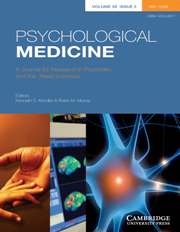Black Mental Health UK
By Zephaniah Samuels
July 18, 2010
 Findings from a new study that shows that anti-psychotic drugs are likely to cause brain damage has raised alarm bells among health campaigners and human rights groups.
Findings from a new study that shows that anti-psychotic drugs are likely to cause brain damage has raised alarm bells among health campaigners and human rights groups.
Effects of antipsychotics on brain volume
Entitled ‘A systematic review of the effects of antipsychotic drugs on brain volume ,’ the results of this study dispel the widely-held view that schizophrenia itself causes brain structural changes. ‘Some evidence points towards the possibility that antipsychotic drugs reduce the volume of brain matter and increase ventricular or fluid volume. Antipsychotics may contribute to the genesis of some of the abnormalities usually attributed to schizophrenia,’ the report says.
Published in the journal of Psychological Medicine these new findings are based on a review of the effects of antipsychotic drugs on the brain. The findings published earlier this year, have raised alarm among race equality and human rights groups who are increasingly concerned about the over-diagnosis of ‘schizophrenia’ among people from African Caribbean people communities.
The annual Count Me In Census report logs the ethnic origin of those admitted into psychiatric care including those detained against their will under the Mental Health Act.
For the past four years census findings have shown that rates of forced detention of black people under the Act continue to rise while falling for the rest of the population. The results of the latest 2009 Census published earlier this year again confirmed health campaigners worst fears, that absolutely no improvement has been made to reduce the detention rate of black people sectioned under the Mental Health Act despite the former government’s million pound programmed to address the racism and within mental health service.
African Caribbean’s routinely given diagnosis of schizophrenia
Once in the system evidence shows that black people are routinely given a diagnosis of schizophrenia even though there is no biological evidence to show that this group have higher rates of mental ill health than their white counter parts.
The diagnosis of schizophrenia is routinely accompanied by a regime of antipsychotic medication, with little evidence of those who enter the system ever making a full recovery.
A report by the now defunct Mental Health Act Commission entitled, Risks, Rights and Recovery published in 2008 show that over stretched staff are regularly give patients high doses of medication in order to make patients more easy to manage.
This latest paper challenges the view that schizophrenia itself causes brain structural changes, such as less brain grey matter, larger ventricles and more cerebrospinal fluid (CSF) spaces, researchers say. The team responsible for this work reviewed magnetic resonance imaging studies, which had assessed brain changes in patient on anti-psychotic and those of patients not on the drugs.
Over half of the 26 studies showed that the brains of patients on anti-psychotics had shrunk. This was compared to the 21 studies of patients who had not be given anti-psychotics, where just five showed brain size decreases. However no differences were reported in three studies of non-drug patients who had been ill for a long time.
Read entire article: http://www.blackmentalhealth.org.uk/index.php?option=com_content&task=view&id=805&Itemid=117


SHARE YOUR STORY/COMMENT